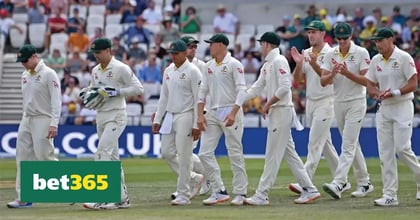Betting Events
The biggest betting event in Australia without question is the Melbourne Cup in horse racing, dubbed ‘the race that stops a nation’. As the crown jewel of Melbourne’s Spring Racing Carnival, the Melbourne Cup routinely attracts the best stayers from around the globe to compete across two miles.
Hot on the heels of the Melbourne Spring Racing Carnival is Sydney’s Autumn Racing schedule, dubbed 'The Championships'. Containing a plethora of Group 1 racing, The Championships has multimillion dollar races which rival any carnival in the world.
Outside the two biggest carnivals in Australia, the world’s richest race on turf is The Everest, which is run every year in October in Sydney. Attracting the world’s best sprinters, the event grows in stature every year. On the sports side of things, the AFL and NRL grand finals are the biggest betting events of the year. Everything from match-winners, first goal or try-scorer, or who will be best on ground in an AFL match can be bet on, and Australian bettors love wagering on the footy finals.
How do we Review Online Gambling Sites?
There’s no such thing as ‘try before you buy’ with online gambling sites, which is why it’s so important to find reputable sites that have everything you’re looking for. Australian gambling sites are popping up almost every week, but knowing the ones you can trust is the hardest thing to do when you’re looking to sign up and make some bets. Thankfully, our team of experts puts in all the hard work for you so you don’t have to stress when you pick a gambling site. Our experts go through a stringent review process where we consider everything so you don’t have to, from the sign-up and payment methods all the way through to the mobile app and the user-friendliness of the experience. We put it to the test so when you sign up and place your wagers, you can do so with full confidence. Here's a quick guide on what we look for:
Variety of Markets
A key area with any betting operator is choice. Knowing different types of markets available is crucial when deciding to sign up to one of the many betting sites you will come across.
User Experience
Our user experience tests analyse how easy it is to find what you want and we look at whether it is simple to keep tabs on your wagers. How long does it take to sign up, sign in and get playing? How can you manage your account requirements and expectations? These factors are all key to earning a recommendation from Gambling.com and rightly so.
Payments
Cashing out your winnings at the best sportsbooks should be a seamless experience, as should making deposits and receiving instant withdrawal options. We review all the payment options of all the best gambling sites so you know what is possible and what isn’t before you sign up.
Mobile App Experience
These days placing a bet online has moved almost exclusively to mobile, with the very best betting sites building products and platforms for a mobile–first user experience. We identify the very best mobile sports betting apps with loads of sports betting markets. We aim to make sure the on-the-go gaming and betting experience via your mobile or tablet device, iOS or Android is totally up to par and fit for purpose.
Safety and Security
Every online gambling site we recommend will support and promote responsible gambling, highlighting its commitment where applicable. We only review and recommend fully licensed and regulated gambling sites to ensure you receive all the protections and supports that are available.
Customer Support
The very best betting sites available in Australia will have 24/7 Customer Support, via live chat, email and telephone. We ensure they live up to their claims, liaising with support staff, asking questions, and testing the competency to make sure they provide the first-class service you would expect at all times of the year.
Types of Betting
There are numerous types of bets that punters can partake in with their online gambling site. When it comes to horse, harness and greyhound racing, online betting sites will offer the traditional win and place markets. From there, the exotic markets such as exactas, trifectas and first fours are covered by the best horse racing betting sites in Australia. One of the most popular betting types for Australians is the multi bet. To place a multi bet, punters need to pick two or more bets to place on a single slip. As the name suggests, the odds are multiplied for every ‘leg’ selected.




